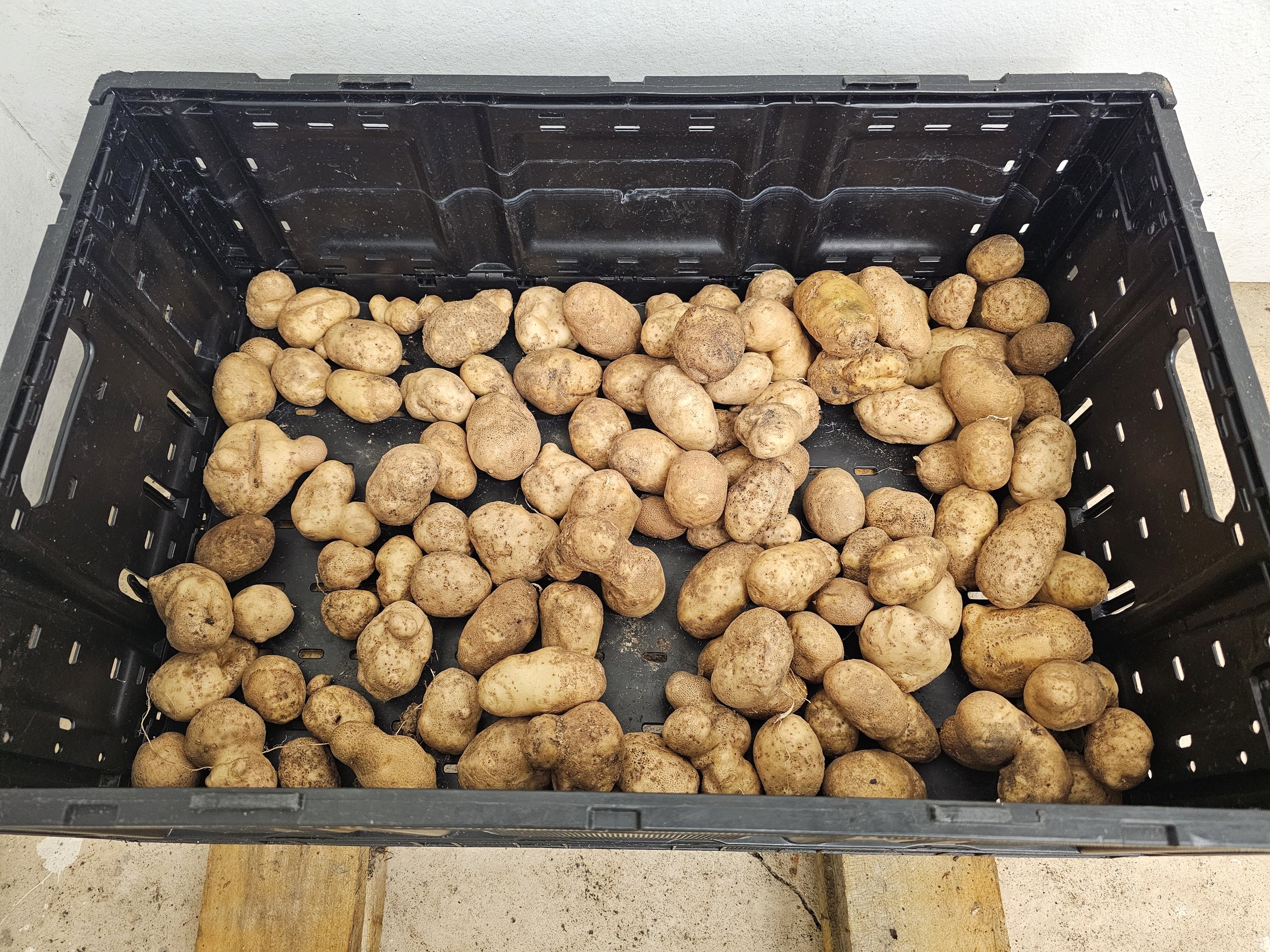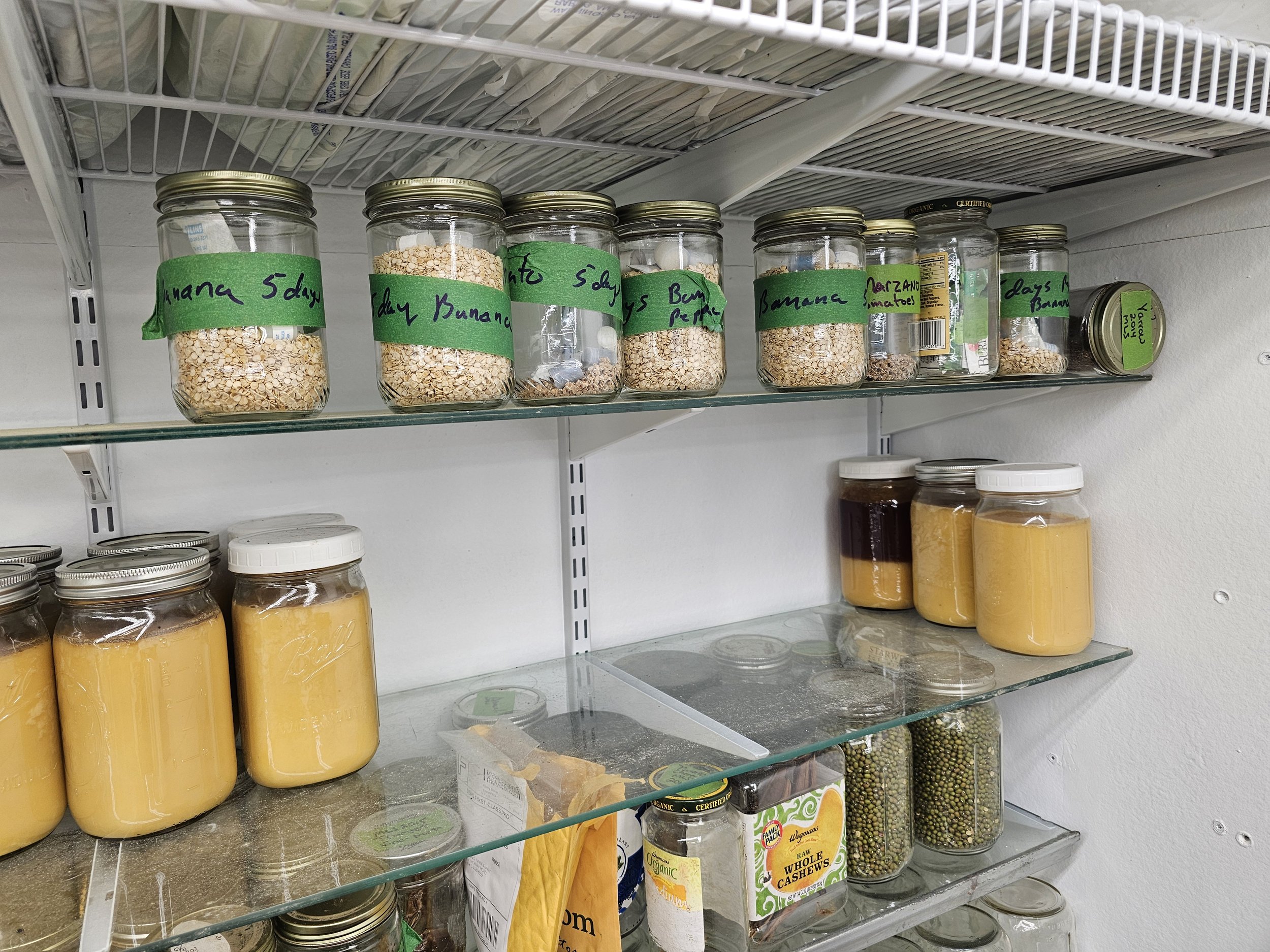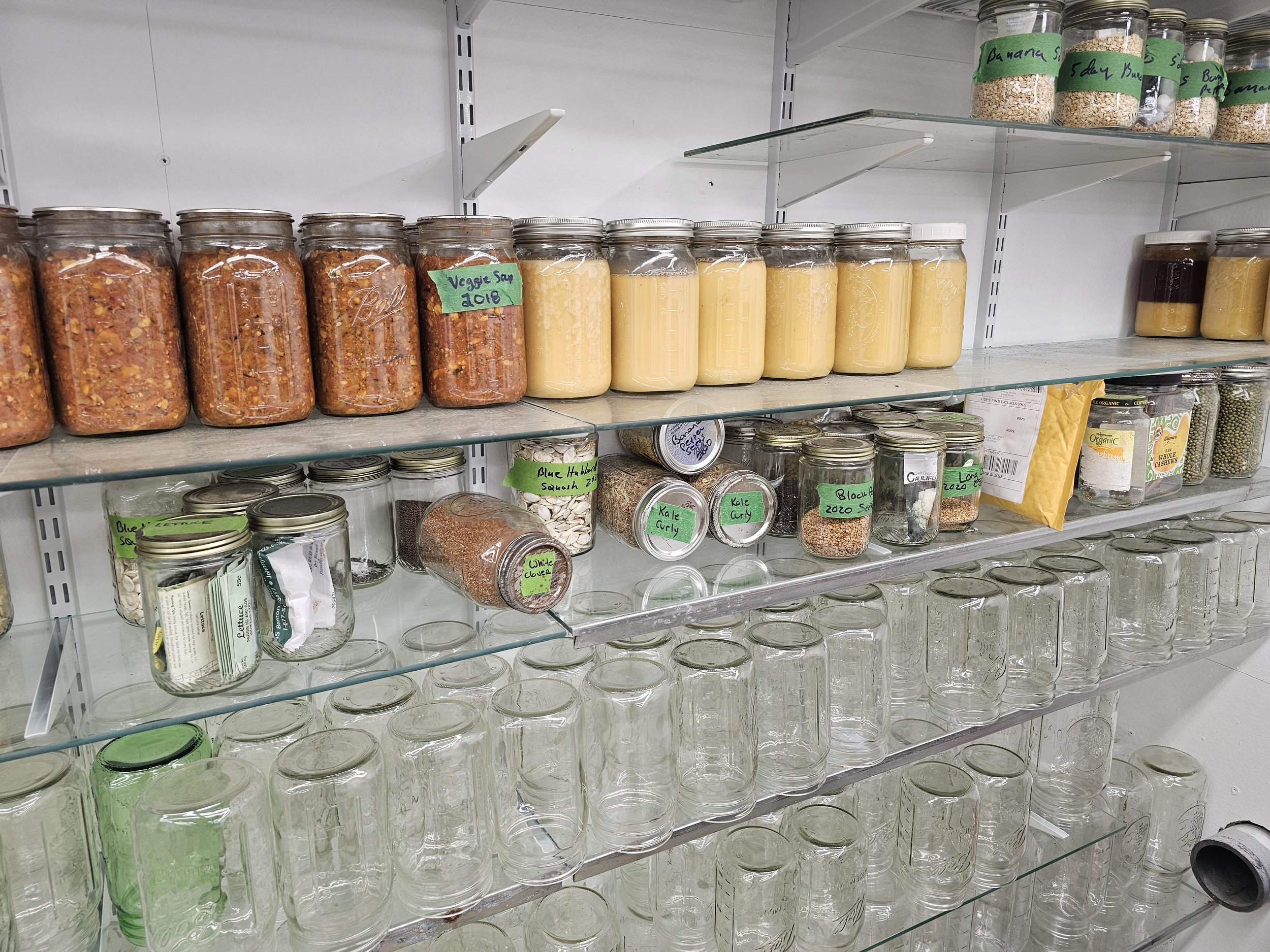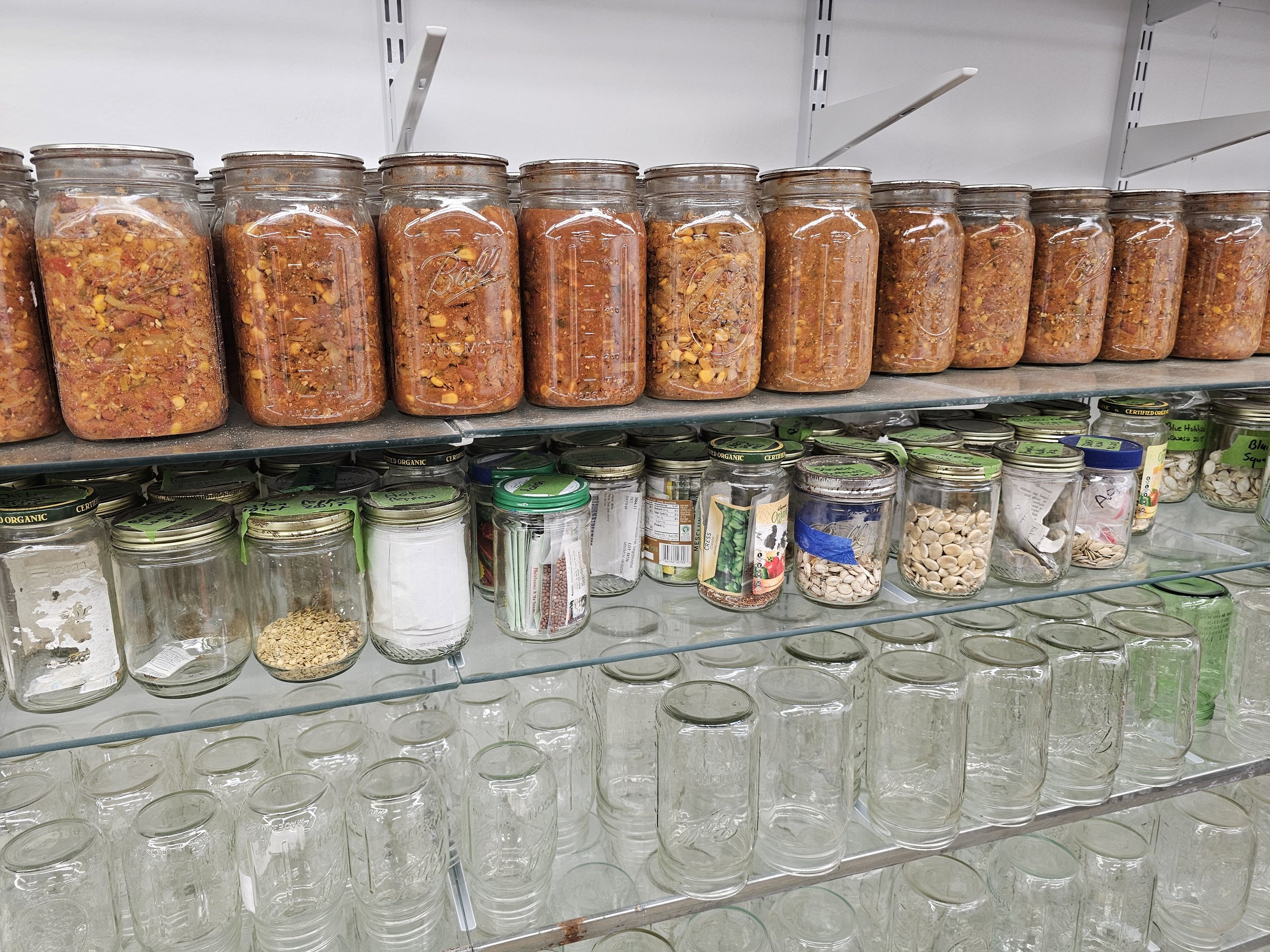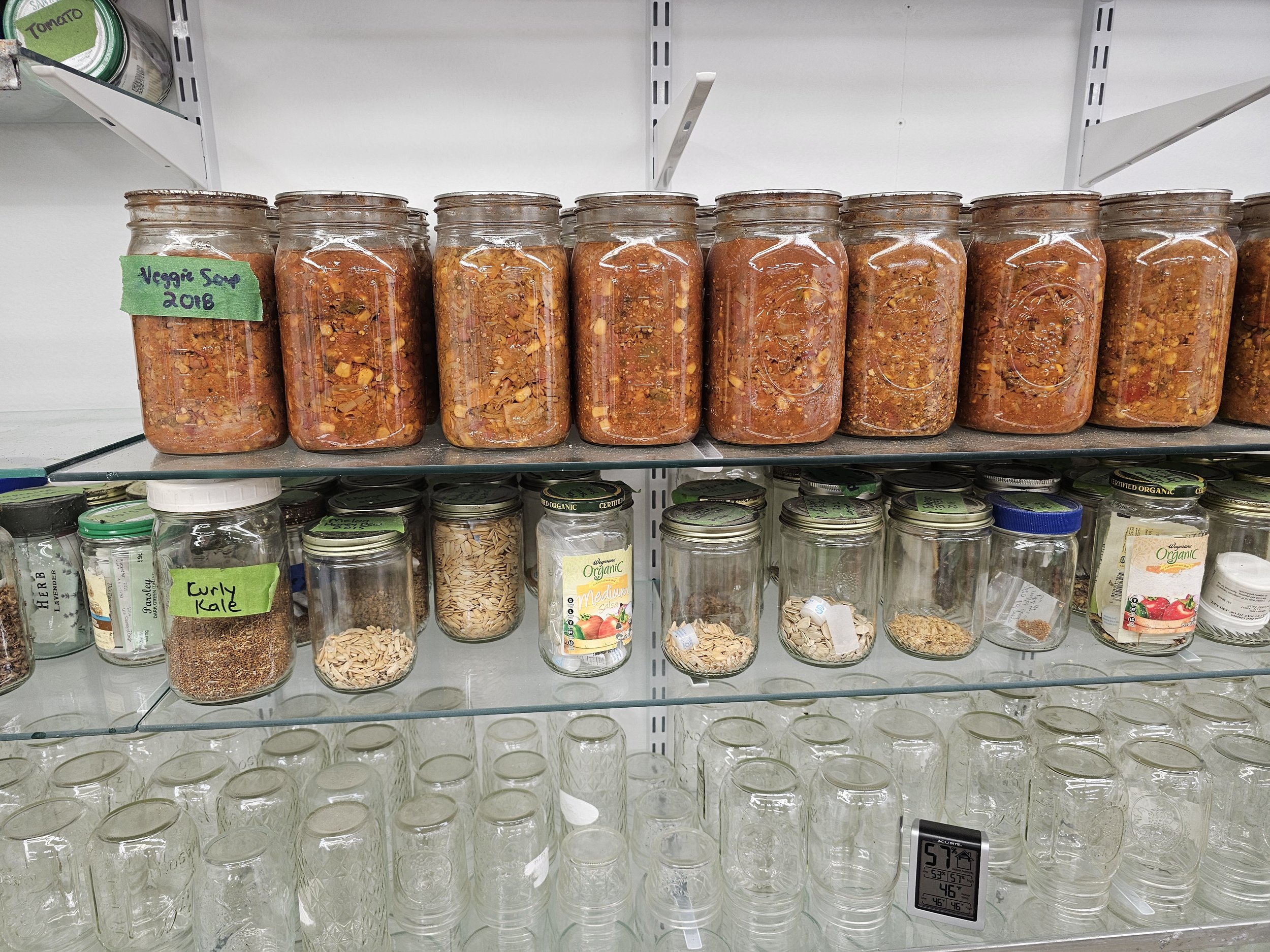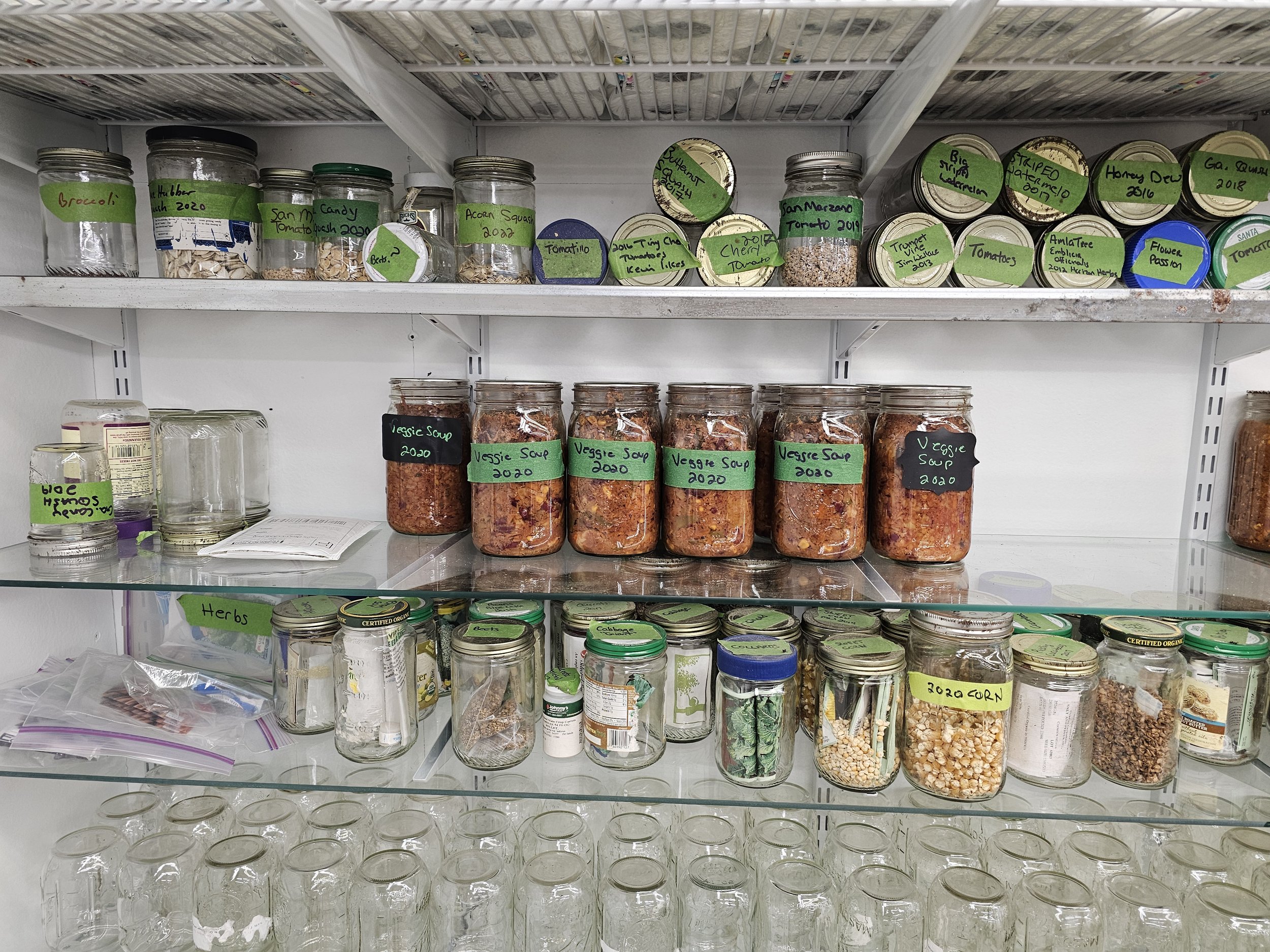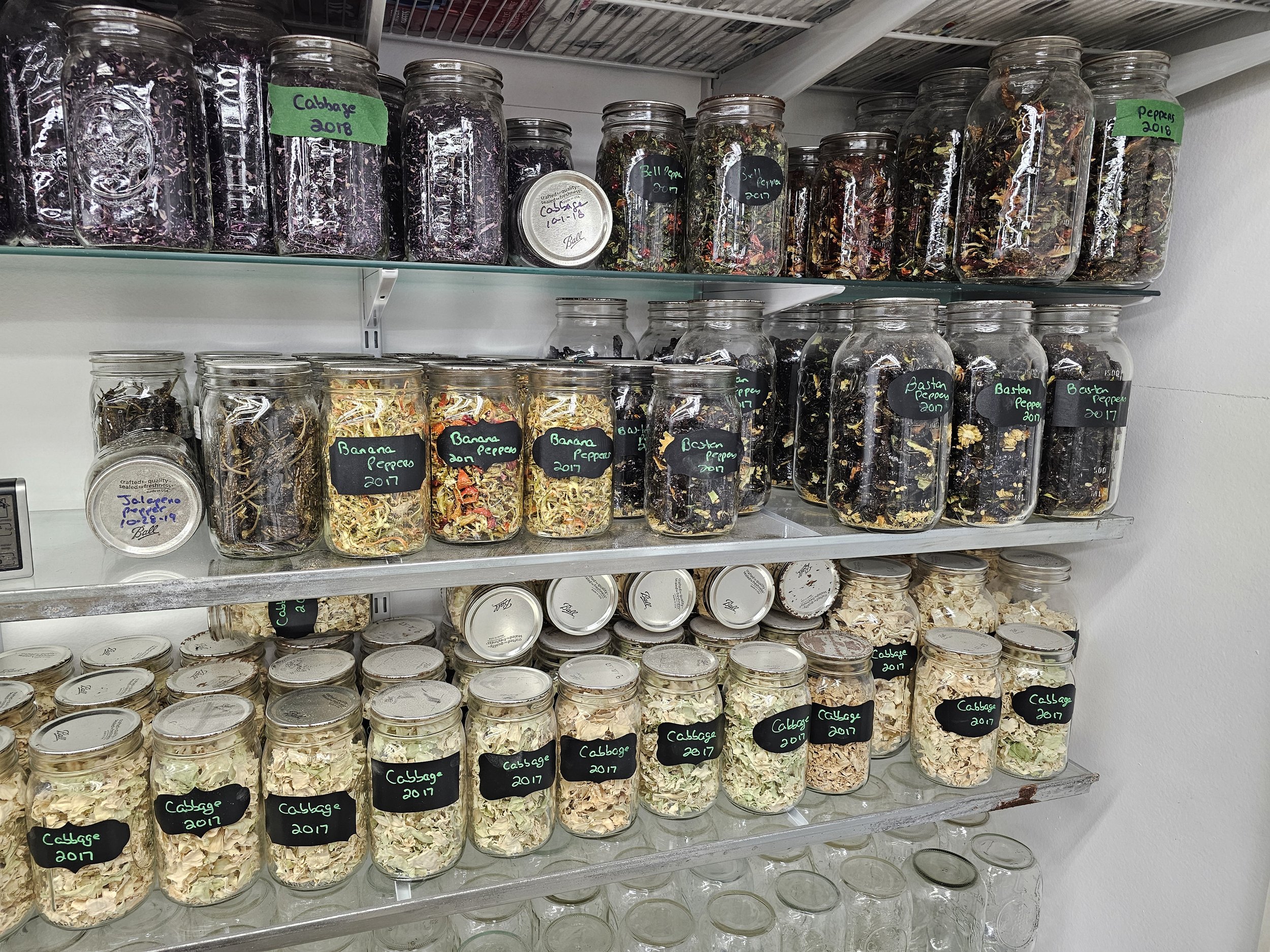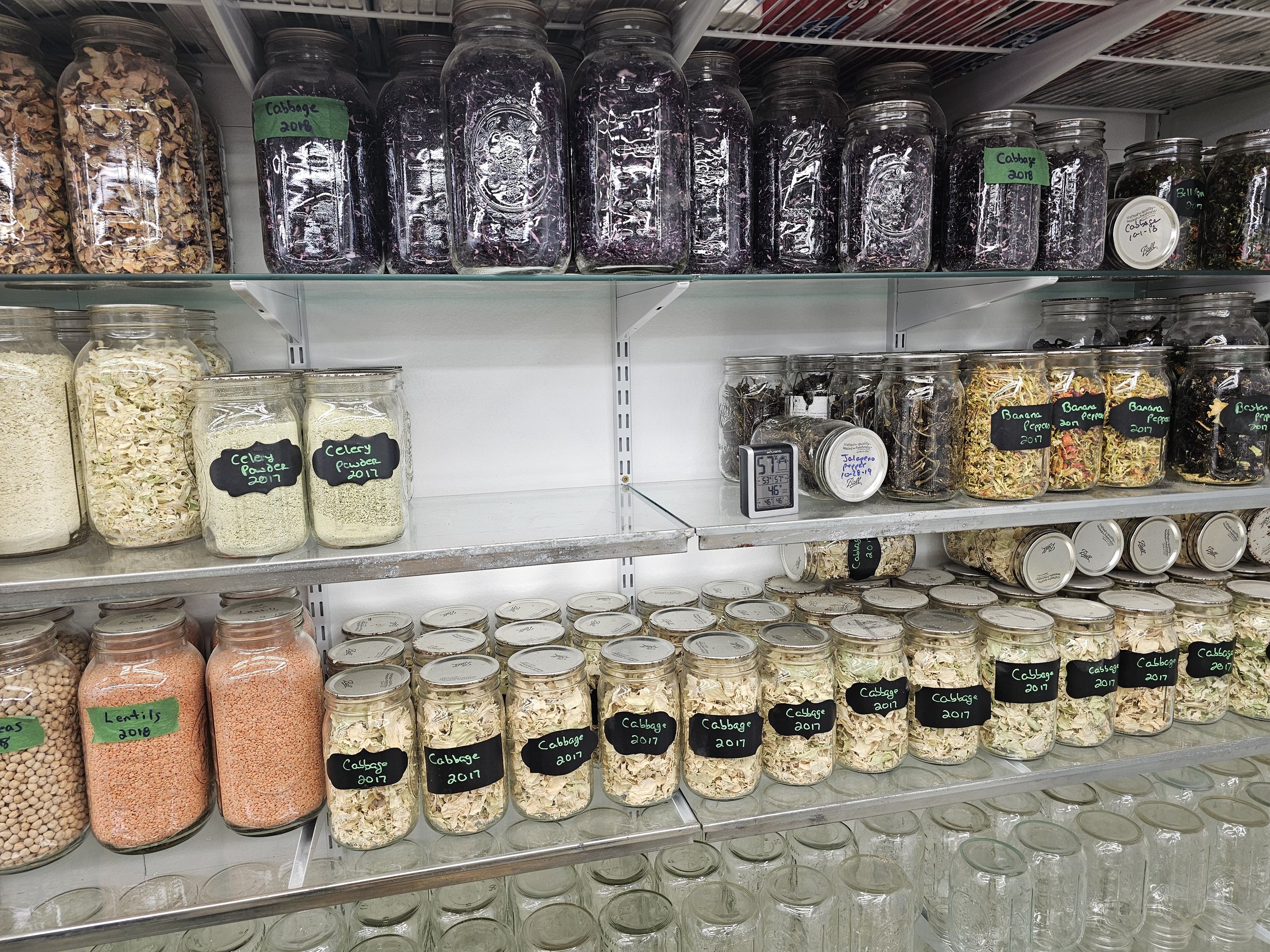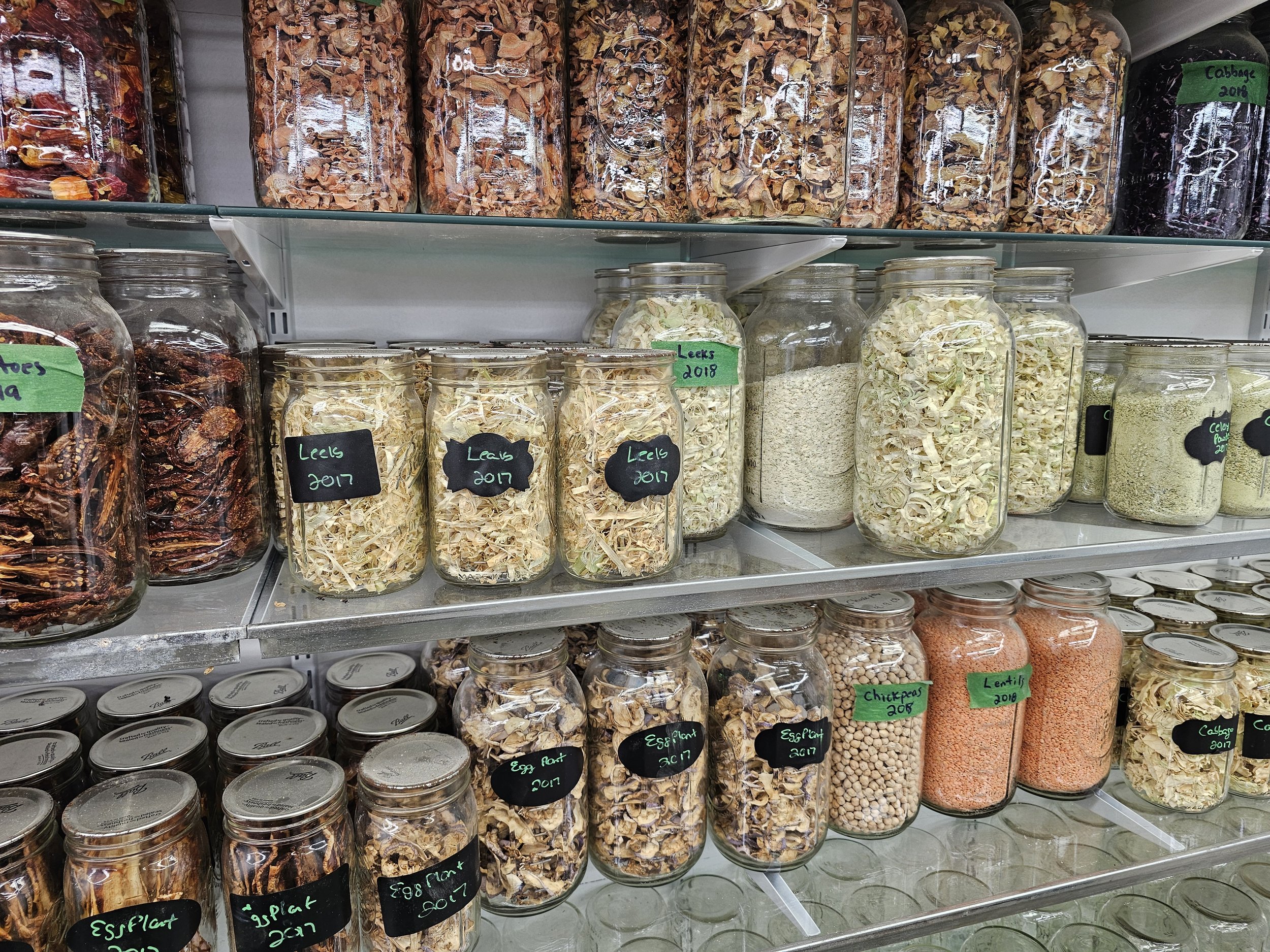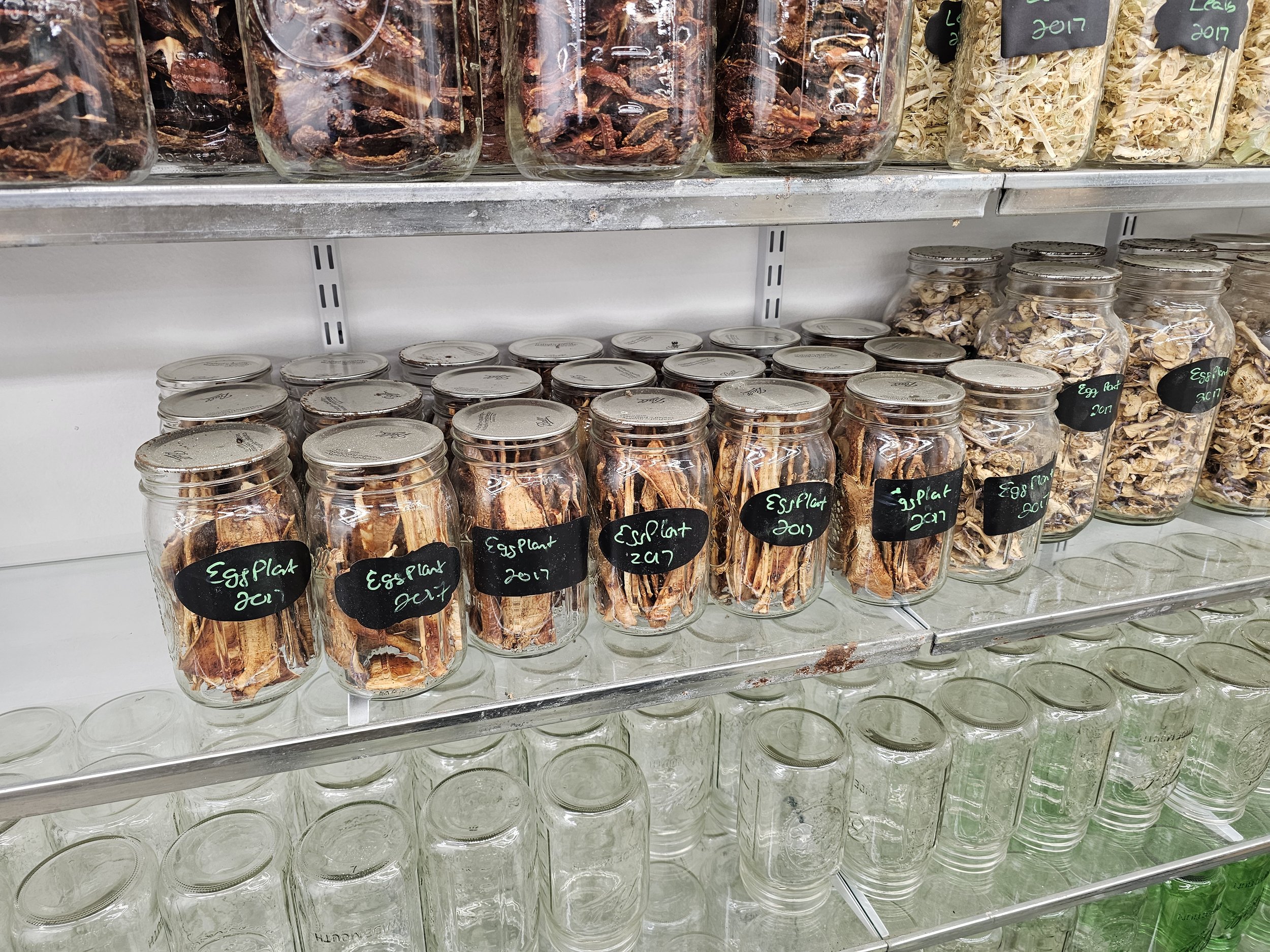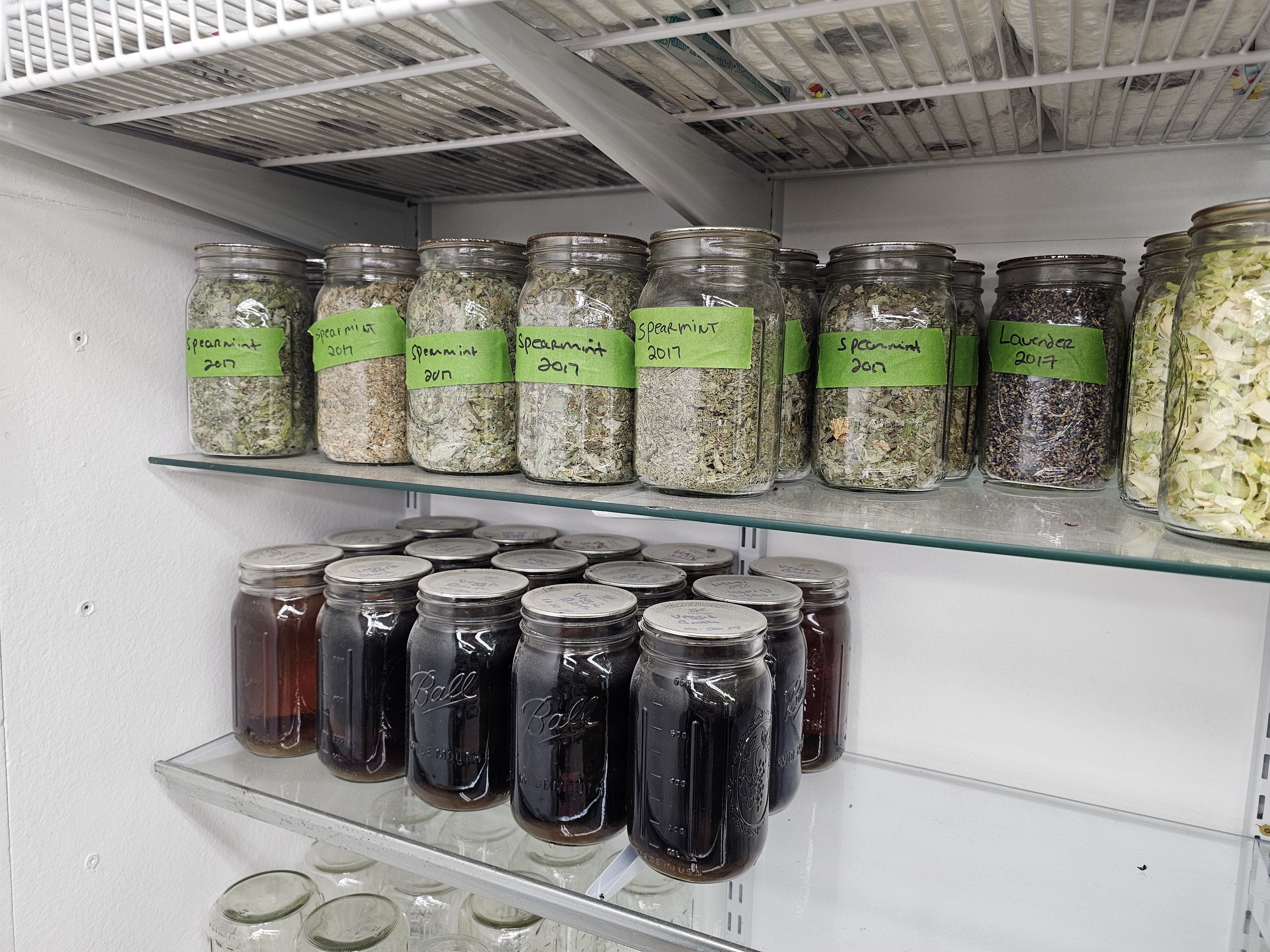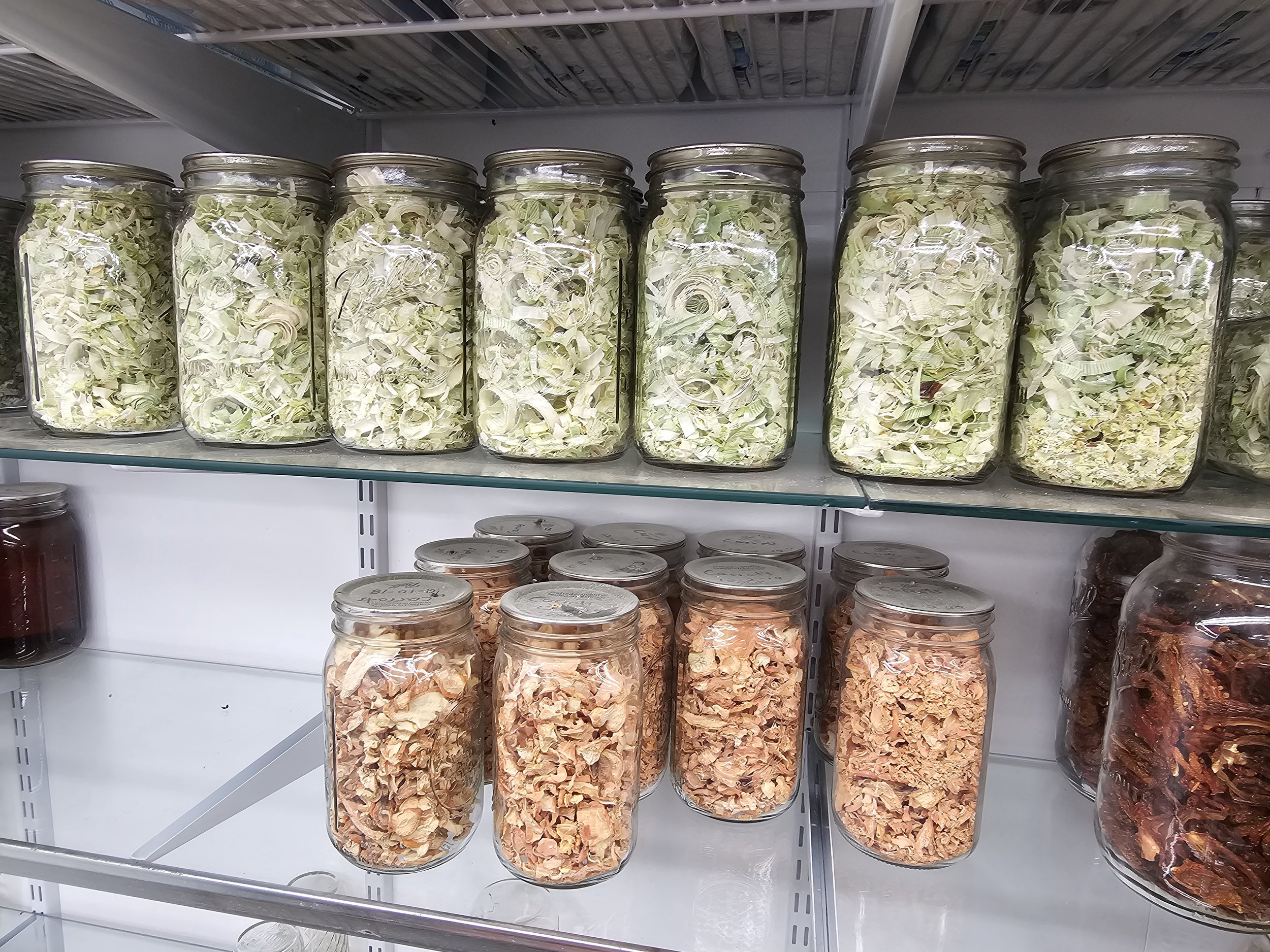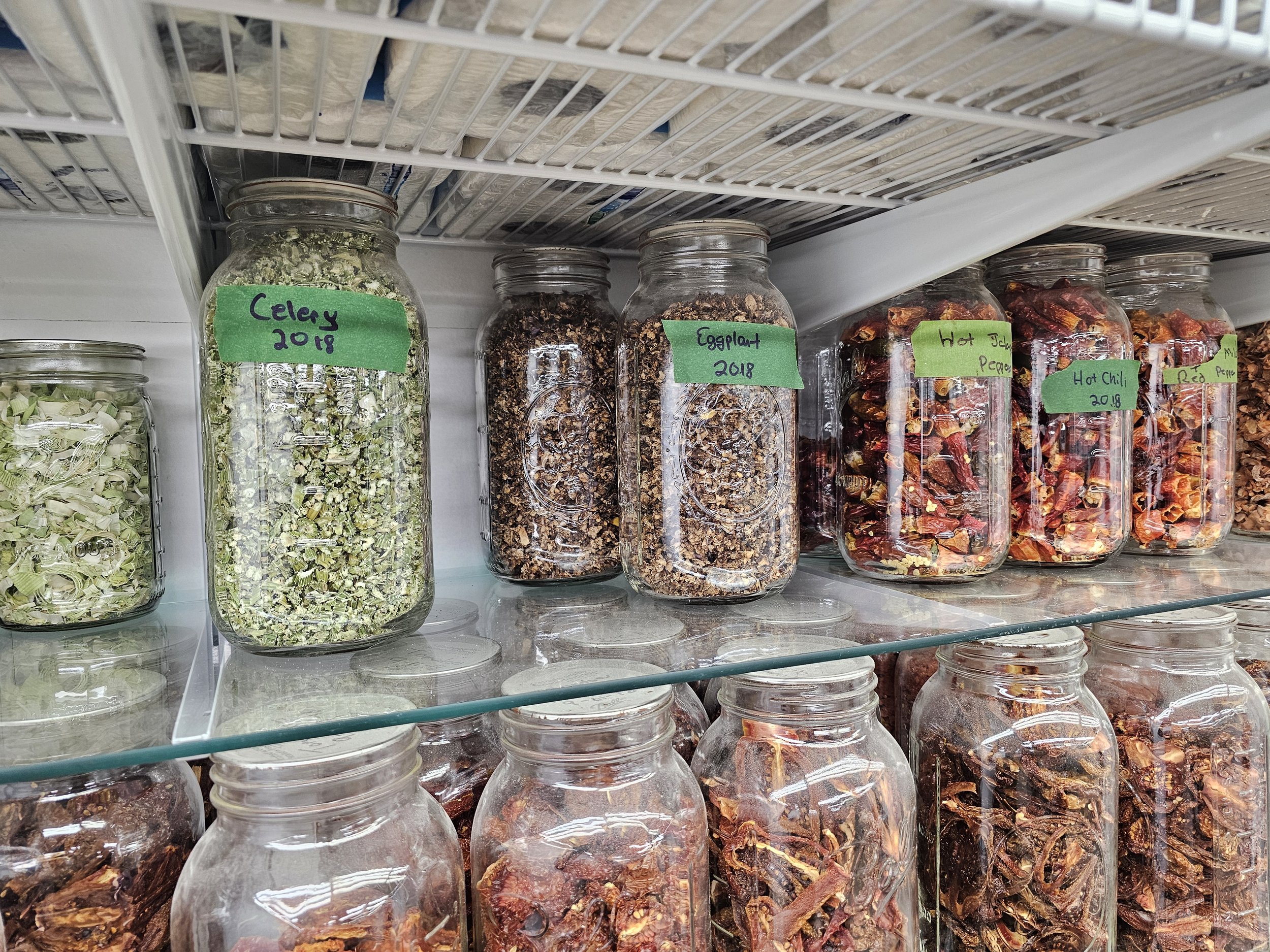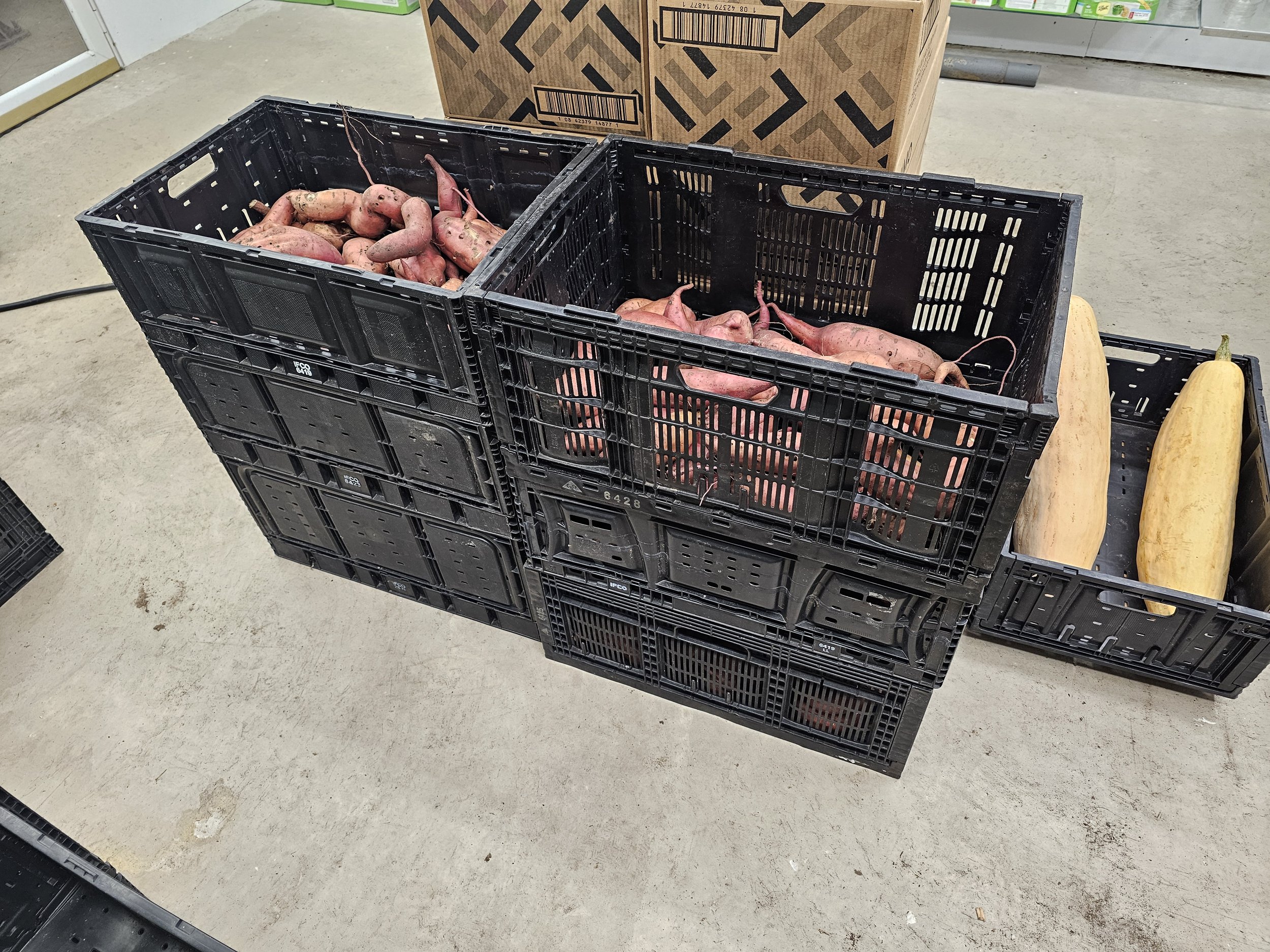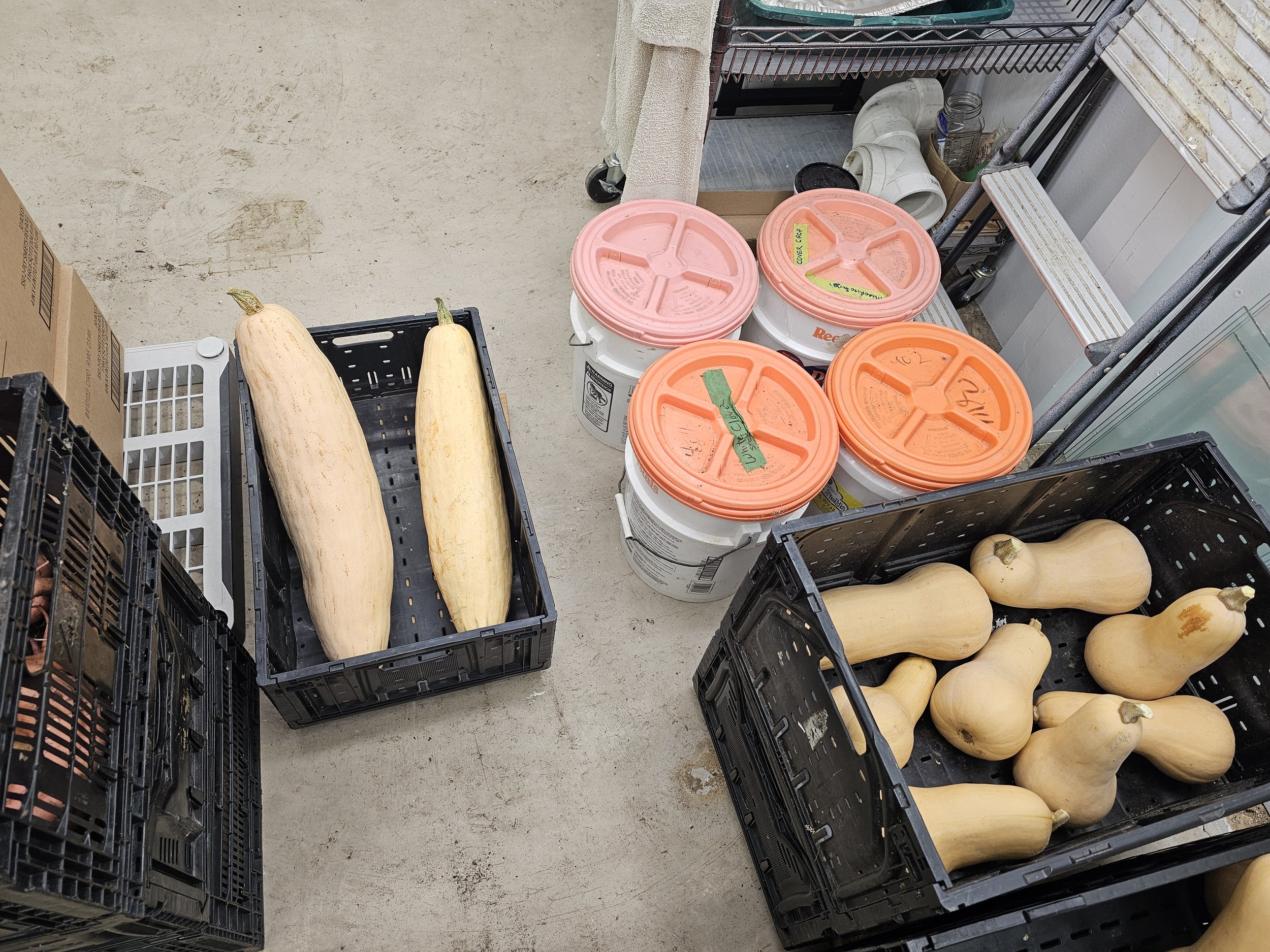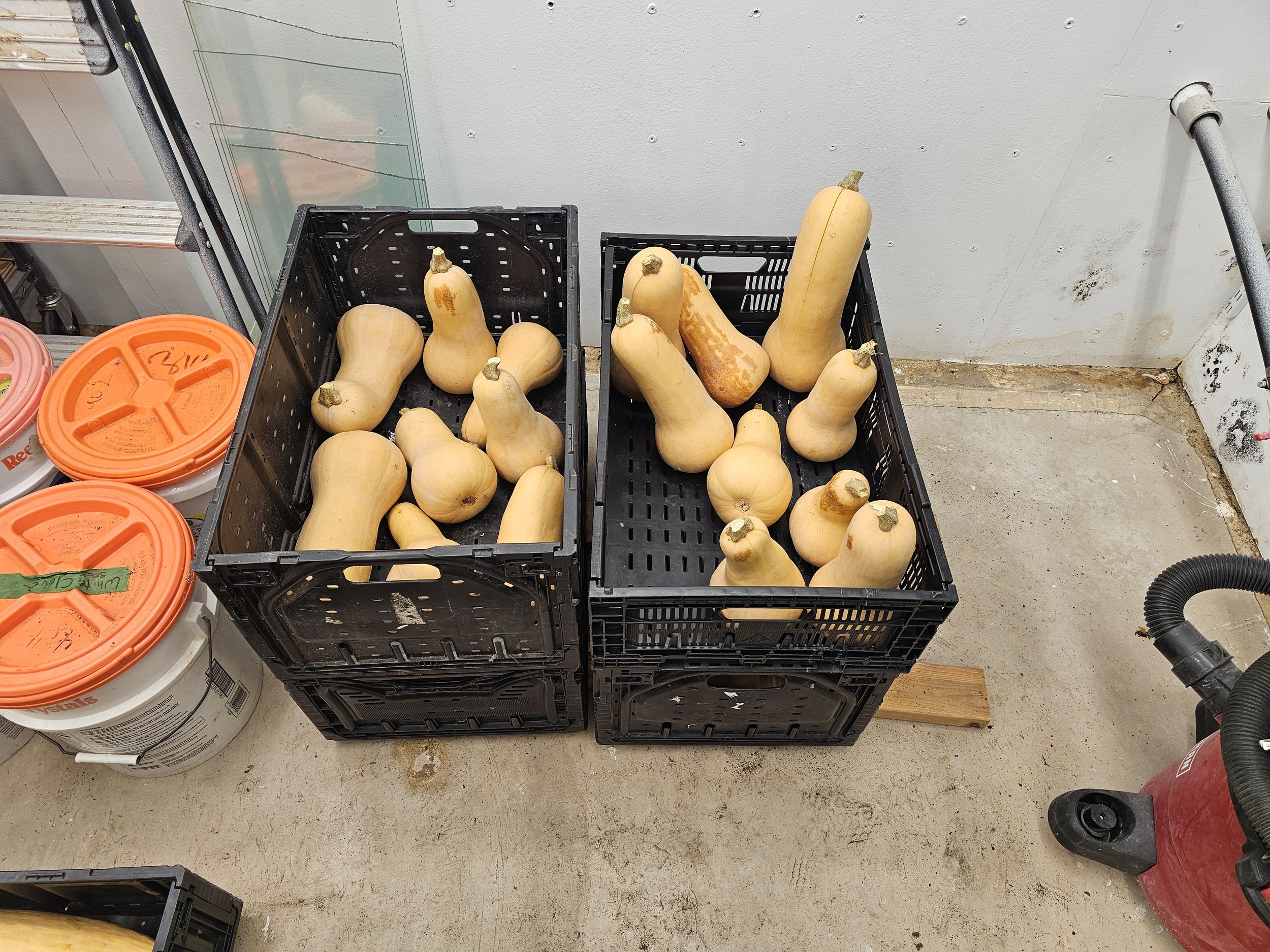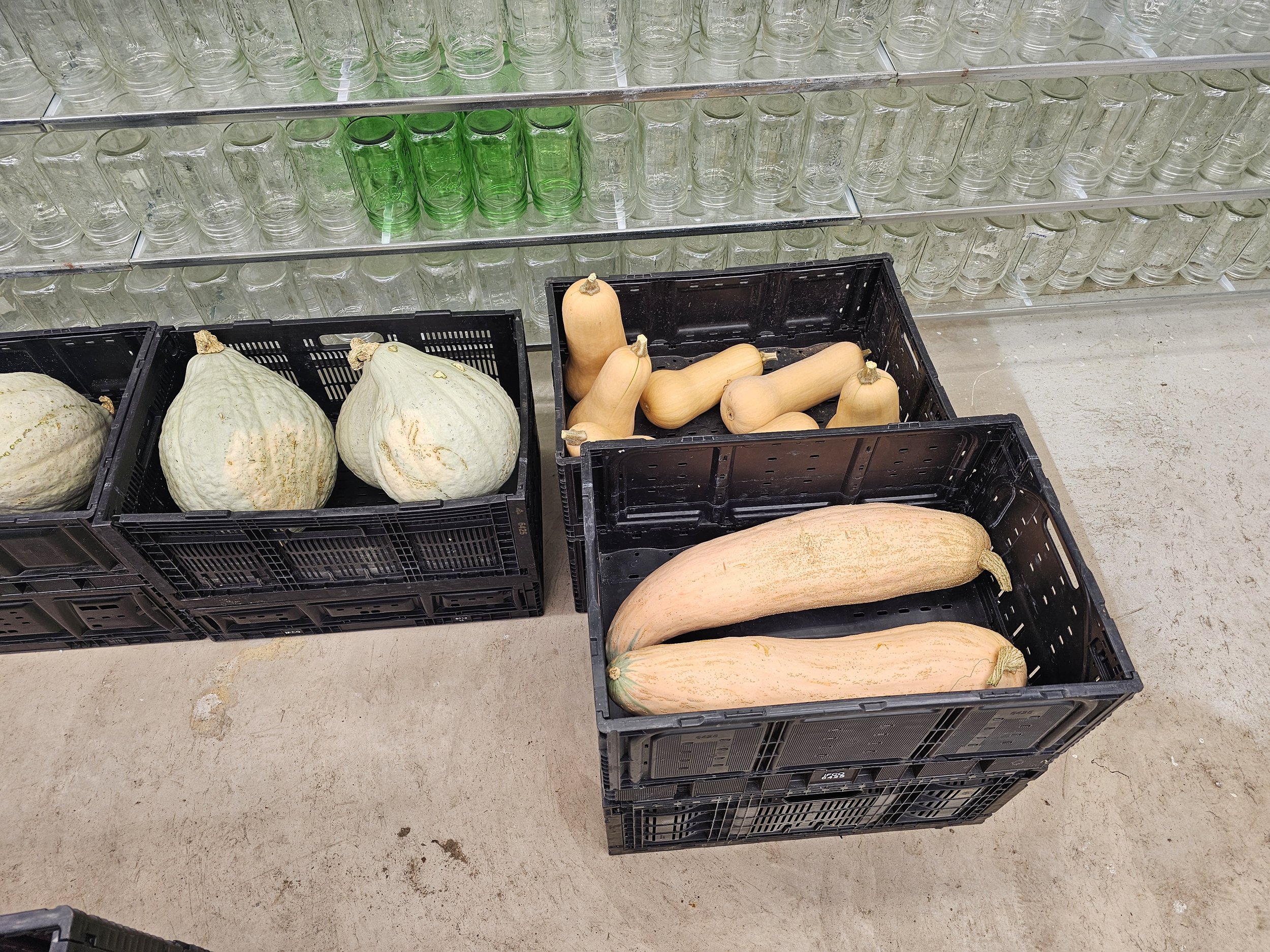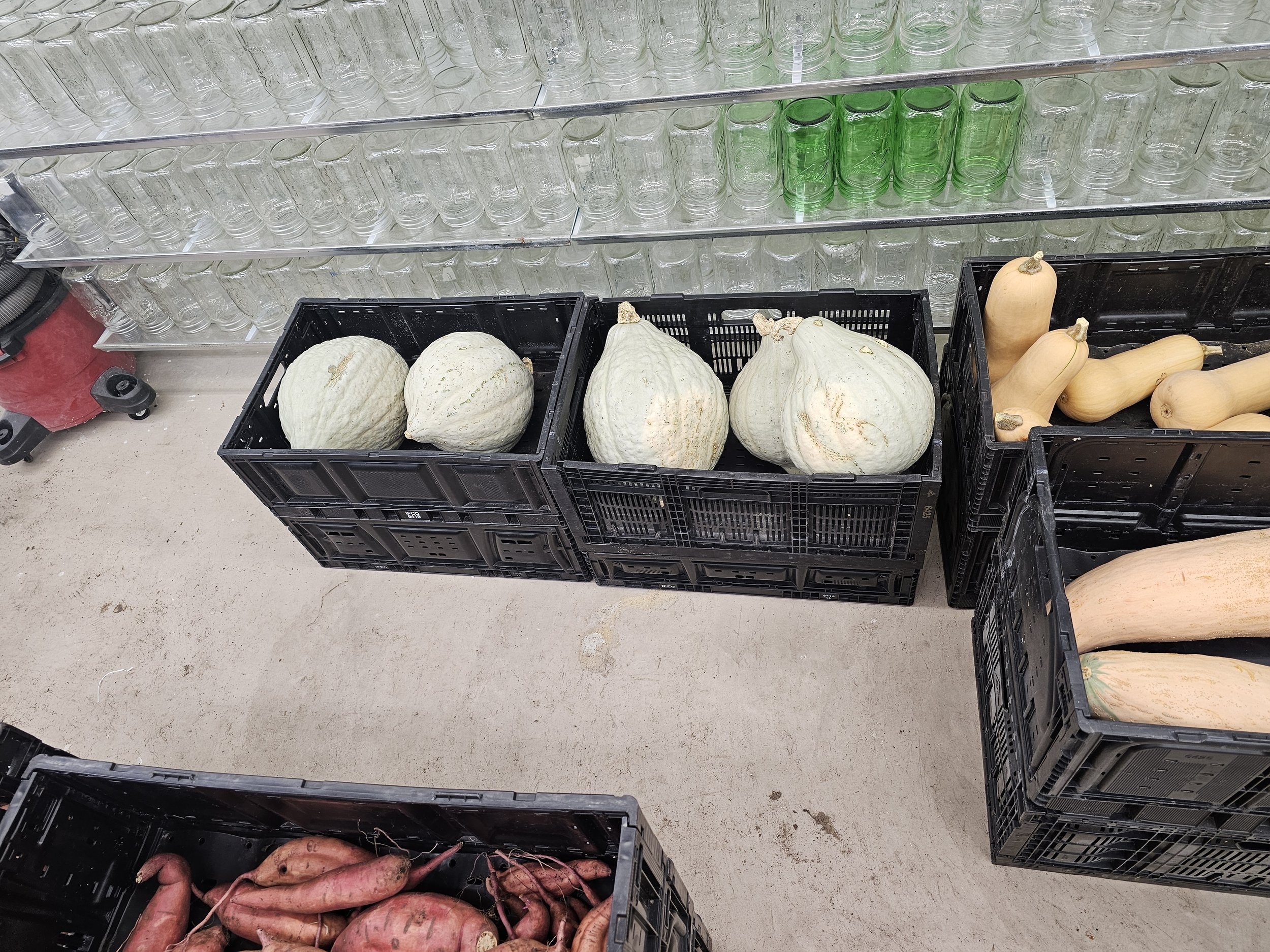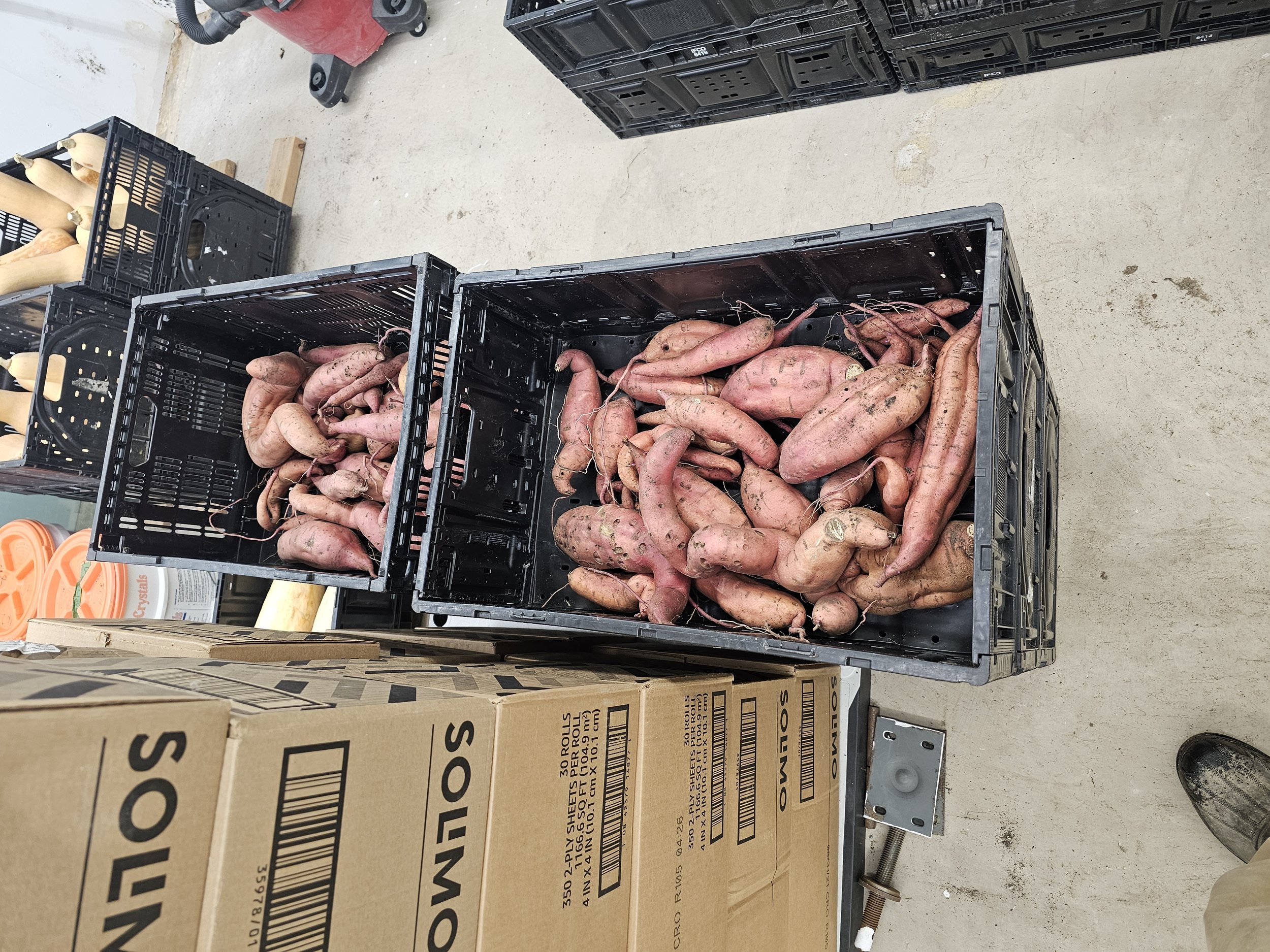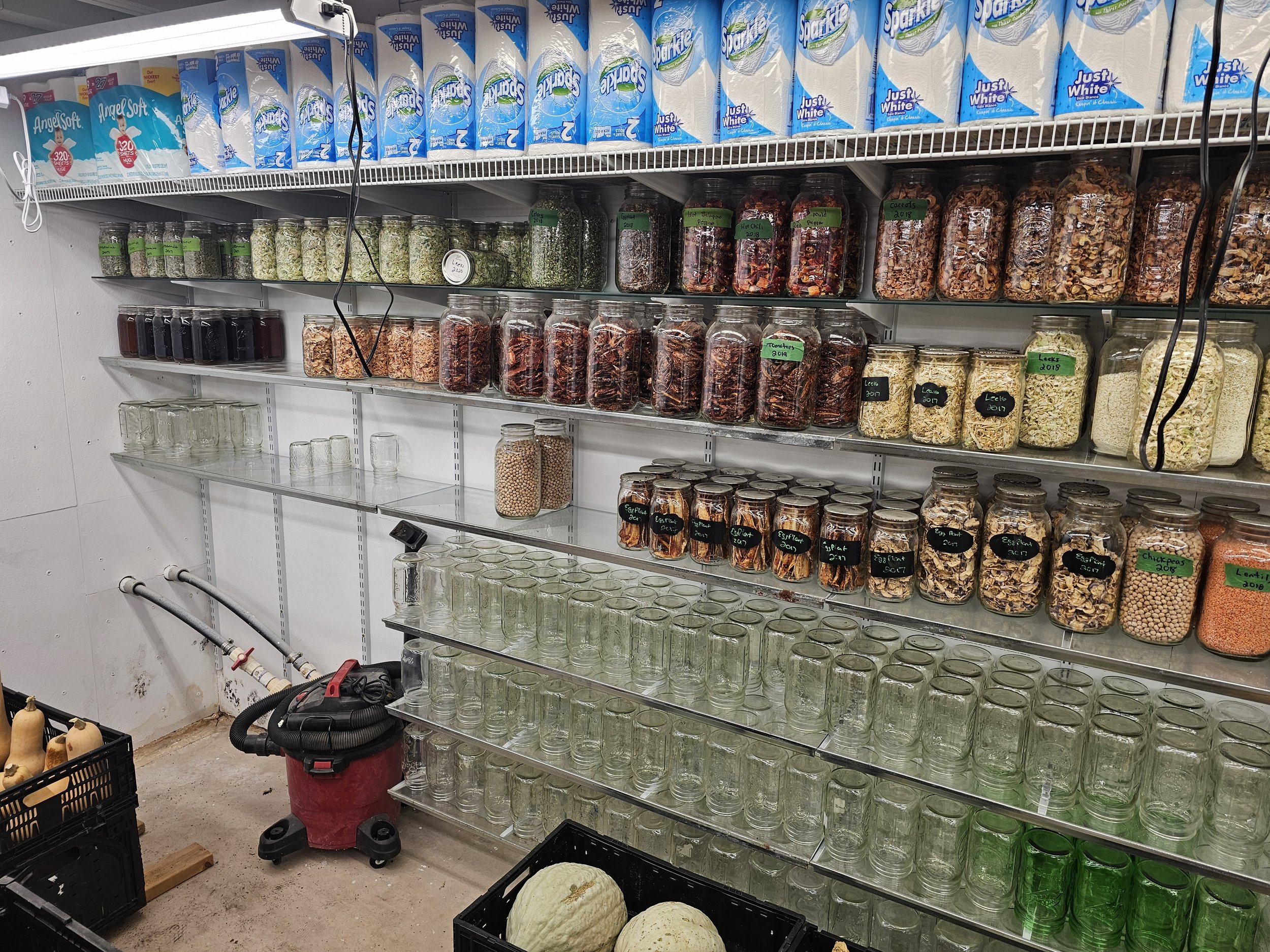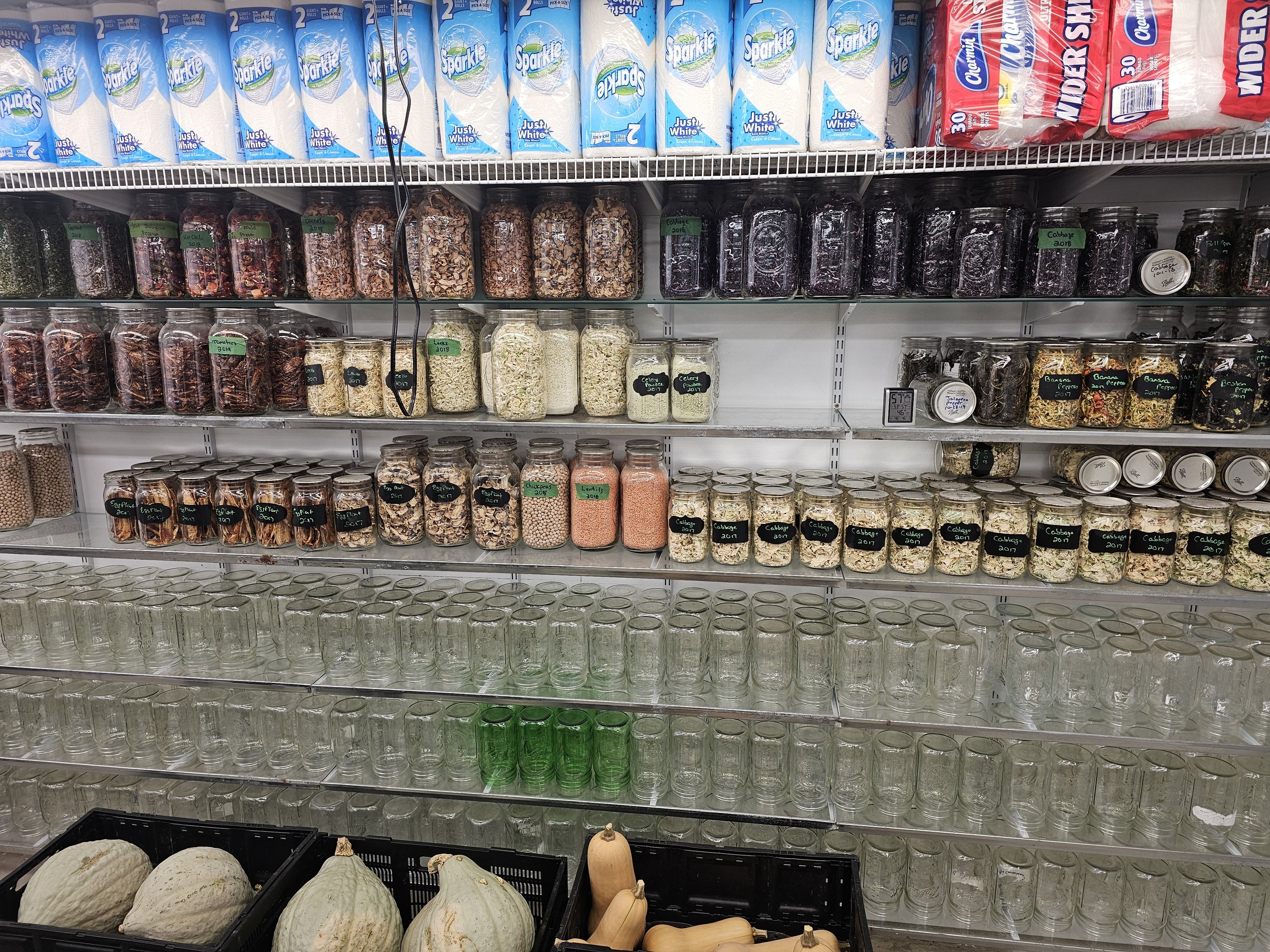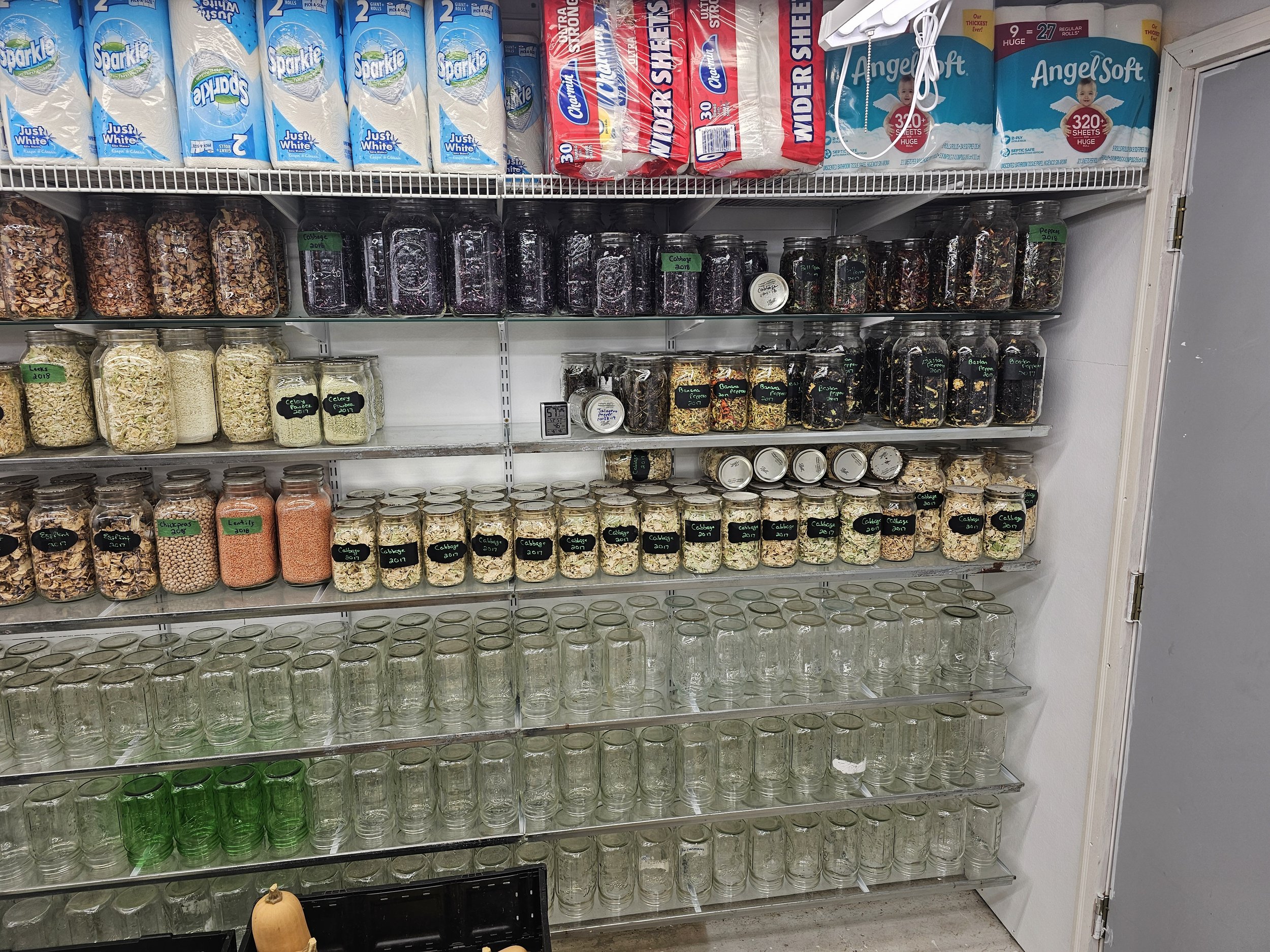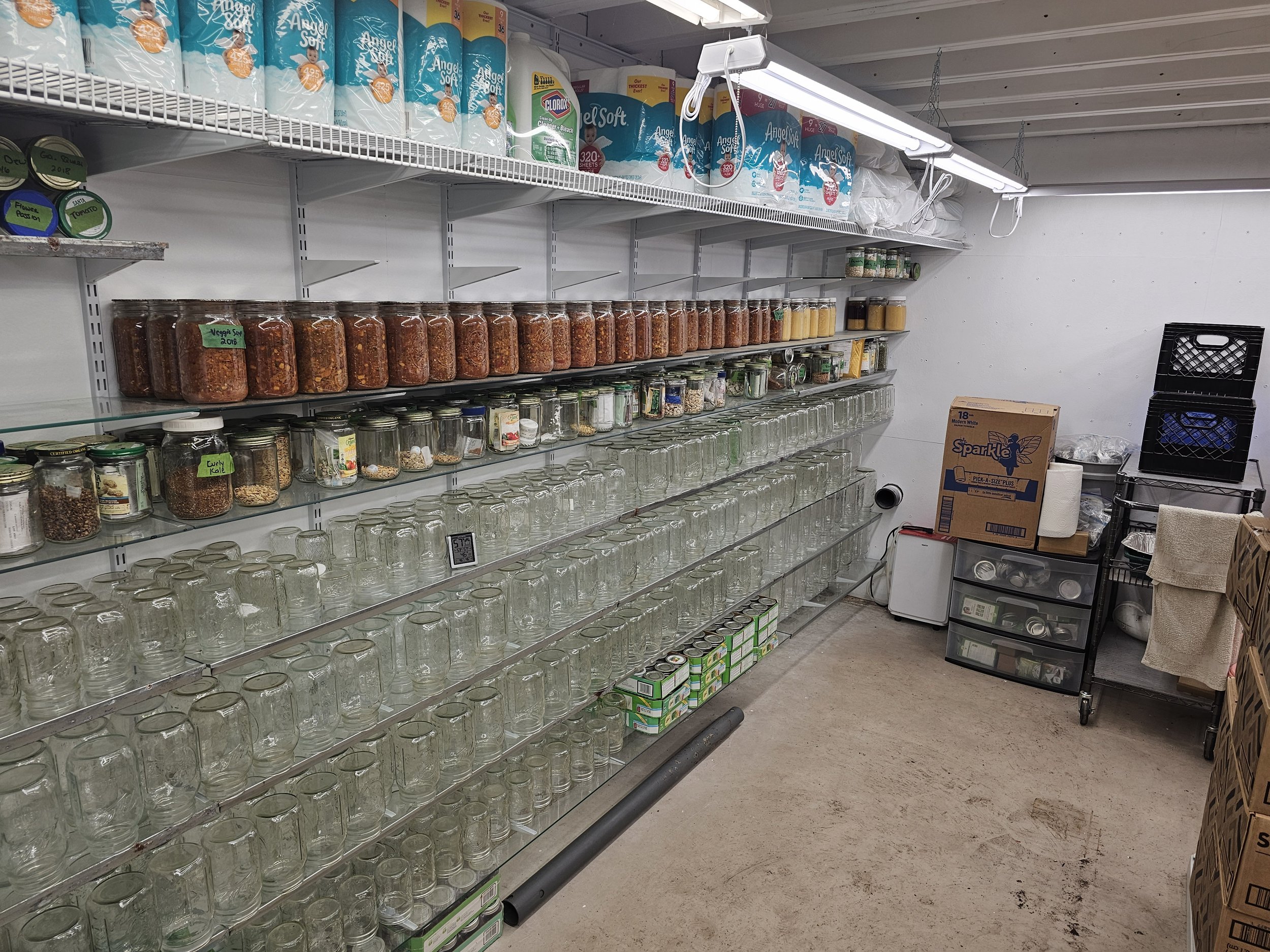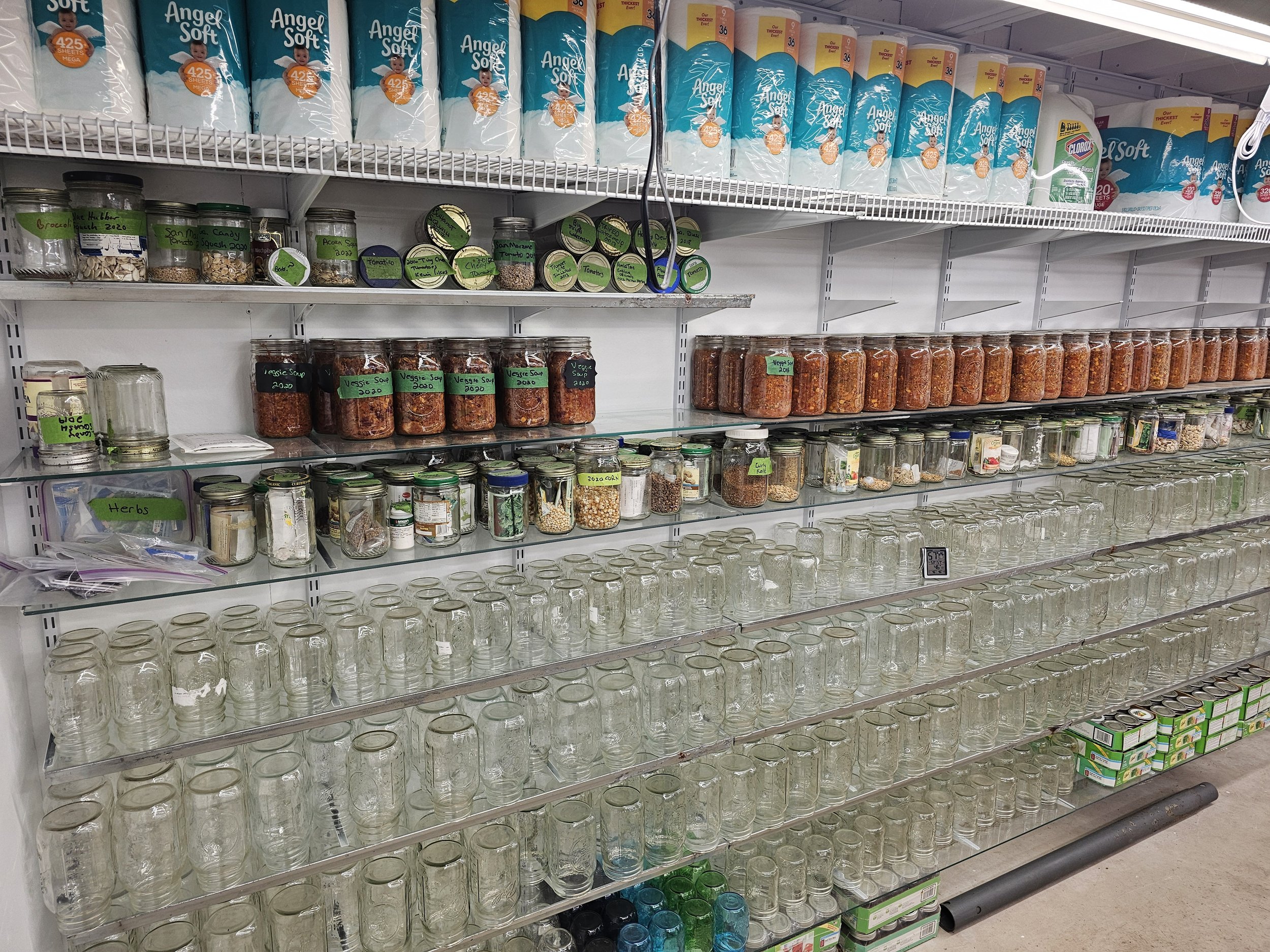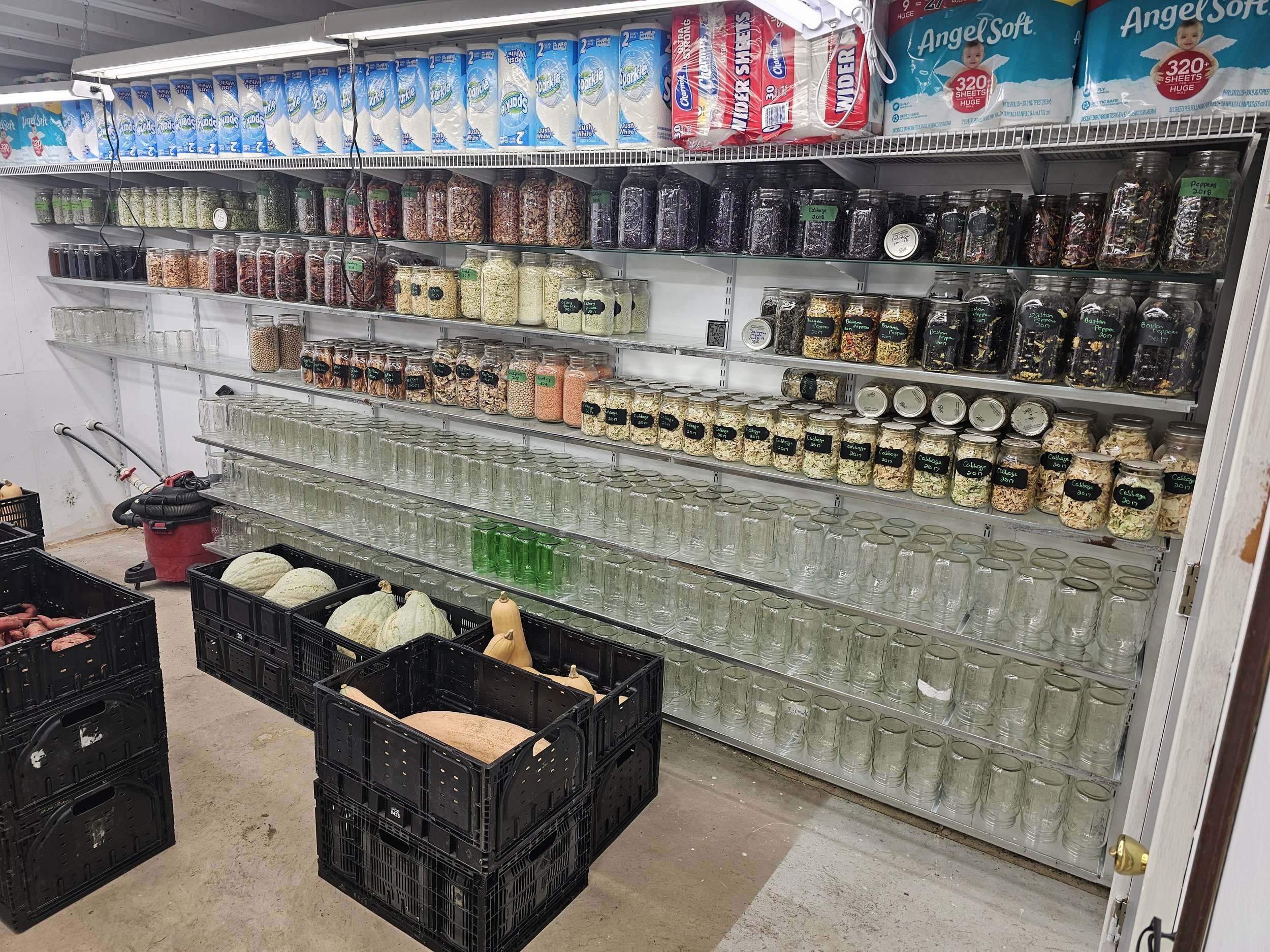Rediscovering the Root Cellar:
A Modern Homesteader's Essential Asset
Introduction:
In the pursuit of sustainable living and self-sufficiency, modern homesteaders are increasingly turning to age-old practices to enhance their lifestyles. One such time-honored asset is the root cellar—a versatile and efficient storage space that offers a range of benefits to those seeking to embrace a more resilient and sustainable way of life.
Preservation of Fresh Produce: One of the primary benefits of a root cellar is its ability to extend the shelf life of fresh produce. Fruits and vegetables such as apples, carrots, potatoes, and onions thrive in the cool, dark environment of a root cellar, allowing homesteaders to enjoy their harvest well beyond the growing season.
Energy Efficiency: Root cellars operate on the principle of utilizing the Earth's natural insulation. Situated underground or partially buried, they tap into the stable temperatures provided by the surrounding soil. This natural cooling system eliminates the need for electricity or other energy sources, making root cellars an eco-friendly and cost-effective storage solution.
Reduced Food Waste: By providing an ideal environment for storing perishables, root cellars contribute to the reduction of food waste. Modern homesteaders can harvest and store larger quantities of produce without the concern of rapid spoilage, helping to ensure that the fruits of their labor are enjoyed throughout the year.
Diverse Storage Options: Root cellars are not limited to just storing root vegetables. They can accommodate a variety of food items, including canned goods, preserves, and even homemade wine or cheese. The versatility of a root cellar allows homesteaders to keep a diverse range of foods at optimal conditions.
Emergency Preparedness: In times of uncertainty or emergencies, having a well-stocked root cellar can be a crucial asset. It provides a reliable source of sustenance, offering a sense of security and self-sufficiency during disruptions to the food supply chain.
Space Efficiency: Homesteaders often find that root cellars are an excellent solution for optimizing space. By utilizing the area beneath the earth's surface, they can free up valuable living space while still ensuring a bountiful harvest is preserved for later use.
Culinary Opportunities: Beyond the practical benefits, a root cellar can enhance culinary endeavors. The prolonged storage of certain fruits and vegetables can contribute to the development of unique flavors and textures, enriching the homesteader's culinary experiences throughout the seasons.
Humidity Control
Having both a high-humidity section and a low-humidity section in a root cellar can be highly beneficial for storing various fruits, vegetables, and other perishables. The key to effective storage lies in understanding the specific humidity requirements of different types of produce.
Benefits of a High Humidity Section:
Preservation of Moisture: Certain fruits and vegetables, such as apples, carrots, and potatoes, benefit from high humidity. Maintaining a higher moisture level helps prevent them from drying out, shriveling, or losing their crispness over time.
Prevention of Dehydration: High humidity is particularly crucial for root vegetables like beets and parsnips, as well as leafy greens. These items can lose moisture quickly in low-humidity environments, leading to wilting and a decrease in quality.
Reduced Shrinkage: Some fruits, like grapes and berries, thrive in high humidity conditions. Adequate moisture prevents them from losing water content, reducing shrinkage and maintaining a plump, fresh appearance.
Extended Shelf Life: Many fruits and vegetables emit ethylene gas, which can accelerate the ripening process. In a high-humidity environment, the ethylene gas is diluted, slowing down the ripening process and extending the shelf life of produce.
Benefits of a Low Humidity Section:
Prevention of Mold and Mildew: Low humidity is crucial for items that are susceptible to mold and mildew, such as onions and garlic. These bulbs have a protective papery outer layer that can be compromised in high humidity, leading to rot and spoilage.
Inhibition of Sprouting: Some vegetables, like winter squash and pumpkins, can begin to sprout in high humidity conditions. A low-humidity environment helps inhibit premature sprouting, ensuring that these items remain suitable for consumption over an extended period.
Controlled Rotting: Certain fruits, such as apples, release ethylene gas that can accelerate the ripening of neighboring produce. Placing ethylene-sensitive items in a low-humidity section helps control the ripening process and prevents premature rotting.
Enhanced Flavor and Texture: Low humidity can contribute to the optimal storage conditions for items like winter squashes, maintaining their flavor and texture for longer periods. It also helps prevent issues like rubbery or mushy textures in certain fruits and vegetables.
By creating distinct sections with varying humidity levels, a root cellar allows for the customization of storage conditions based on the unique needs of different produce. This thoughtful approach maximizes the longevity and quality of stored items, providing a well-rounded and efficient solution for preserving a wide range of fruits and vegetables.
Benefits of Storing Seeds in a Root Cellar:
In addition to providing optimal conditions for fruits and vegetables, a root cellar can serve as an excellent storage space for seeds. Proper seed storage is essential for maintaining the viability and germination capacity of seeds over time. Here's why storing seeds in a root cellar can be advantageous:
Cool, Dark Environment: Many seeds benefit from cool and dark conditions for long-term storage. A root cellar provides a consistently cool temperature, preventing seeds from undergoing premature germination or deterioration due to heat.
Consistent Temperature and Humidity: Root cellars are designed to maintain a relatively stable temperature and humidity level. This consistency is crucial for preserving the quality of seeds, preventing them from drying out or becoming overly moist, which can impact their germination potential.
Protection from Extreme Temperatures: Seeds are sensitive to extreme temperatures, and exposure to freezing or excessively high temperatures can compromise their viability. A root cellar, being an underground storage space, offers insulation against temperature fluctuations, protecting seeds from extreme weather conditions.
Prevention of Pests and Pathogens: A well-designed root cellar helps keep pests and pathogens at bay. This is particularly important for seeds, as they can be susceptible to damage by insects and fungi. A clean and controlled environment minimizes the risk of infestations and diseases that can affect seed quality.
Extended Viability: Proper storage in a root cellar can extend the viability of seeds, allowing them to remain viable for planting over multiple seasons. This is especially beneficial for gardeners and farmers who want to save and replant seeds from one year to the next.
Space Optimization: Storing seeds in a root cellar allows for efficient use of space. By organizing seeds in a cool and dark section of the cellar, gardeners can create a designated area for seed storage, making it easy to locate and access seeds when needed.
Preservation of Genetic Diversity: Saving and storing seeds is a practice that contributes to the preservation of plant genetic diversity. Root cellars provide an environment that supports the long-term storage of a variety of seeds, helping safeguard different plant species and their unique traits.
Whether storing seeds for future planting or for preserving a diverse seed bank, a root cellar offers a controlled environment that aligns with the needs of seeds, ensuring their longevity and maintaining their potential for successful germination when the time comes to plant.
Conclusion:
As modern homesteaders seek to live more sustainably and independently, the humble root cellar emerges as a fundamental and time-tested asset. Its ability to preserve fresh produce, reduce waste, operate efficiently, and contribute to emergency preparedness makes it an invaluable addition to any homesteader's toolkit. By embracing the wisdom of the past, today's homesteaders are rediscovering the root cellar as a cornerstone of their journey toward a more self-sufficient and resilient lifestyle.

